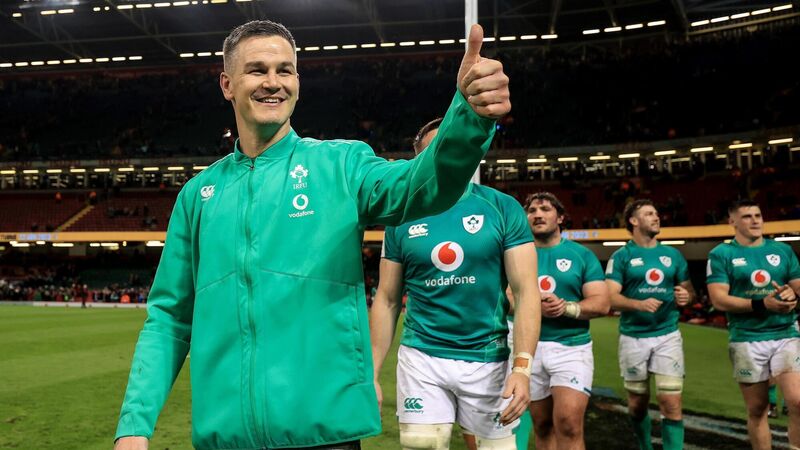Peter Jackson: Sexton's phenomenal endurance shows no sign of waning

ALL SMILES: Ireland’s Johnny Sexton celebrates winning. Pic: INPHO/Dan Sheridan
A monumental landmark passed unnoticed at the weekend, lost in the routine blizzard of largely trivial statistics. Of all the Grand Old Men of the Six Nations, Johnny Sexton is now the grandest, undeniably so.
SIX NATIONS CHAMPIONSHIP
Your home for the latest news, views and analysis of this year's Six Nations Championship from our award winning sports team.
SIX NATIONS CHAMPIONSHIP
Your home for the latest news, views and analysis of this year's Six Nations Championship from our award winning sports team.














